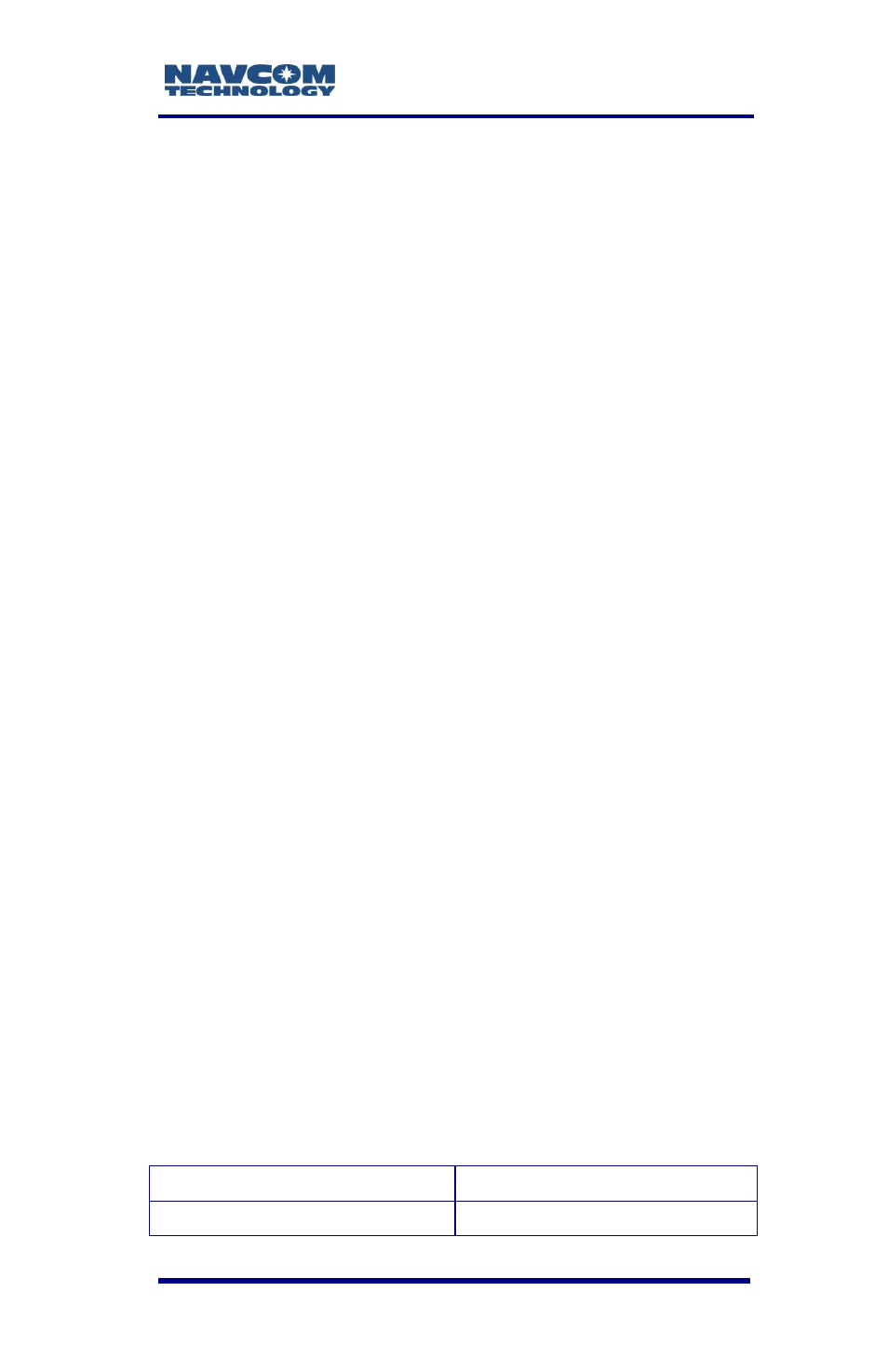Pull-in times – NavCom SF-3050 Rev.E User Manual
Page 163

SF-3050 GNSS Product User Guide
– Rev E
A-137
timing errors, and augmentation correction
messages. Equipment operated on a single-
frequency (i.e., L1/G1) is more susceptible to
atmospheric and solar storm activity than multi-
frequency operated equipment.
RTK Extend is a purchased software option that
uses StarFire to provide continuous RTK
positioning during non-reception of RTK
corrections. When a StarFire-enabled receiver
with RTK Extend falls out of RTK mode, the
system automatically transitions to RTK Extend
mode. Positioning is maintained because of the
close correlation in phase measurement
corrections between RTK and StarFire.
Depending on how long the RTK base station
has been running and is StarFire fixed, the
duration of RTK Extend is limited to:
2 to 15 minutes for an NCT base station
2 to 10 minutes for a non-NCT base station
The correlation between RTK and StarFire
phase measurement corrections decreases
over time, until the system automatically
transitions out of RTK Extend mode to the next
available dGPS mode.
This option is only required on the Rover
receiver. If a Base receiver may be used as a
Rover at a future date, it should be optioned for
RTK Extend as well.
Refer to the StarUtil 3000 User Guide, Chapter
5, for more information on RTK Extend.
Pull-in Times
RTG (StarFire) Single:
Immediate
RTG (StarFire) Dual:
45 minutes, typical
